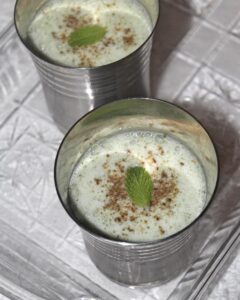At the turn of the last century, Elie Metchnikoff, father of modern immunology, proposed that yogurt was the elixir of life because it contained a strain of “good” bacteria which purportedly cleared toxins from the large intestine. Today, we know for sure that two particular species of “good” bacteria, Lactobacillus bulgaricus and Streptococcus thermophilus—called probiotics, in medical parlance—are the primary elements in yogurt making it a supremely healthy food. It does so by combating certain bad [harmful, or unhealthy] bacteria, and improving our tolerance to milk, especially in people who are allergic to it, to highlight just one example.
Probiotics are defined as live micro-organisms that beneficially affect the host upon ingestion by improving the balance of the intestinal microflora. Intestinal microflora is vital for the development of the immune system.
Probiotics Are Nature’s Organic Healers
The dietary use of live micro-organisms has a long history—examples include soured milk and cultured dairy products such as yogurt, used therapeutically even before the existence of micro-organisms was proved. As a matter of fact, the use of micro-organisms in food fermentation is one of the oldest methods for producing and preserving food. They are, indeed, staples in our diet.
Known as nature’s organic healers, probiotics have proved to be indispensable in innumerable studies. They keep us healthy by cleansing our intestines of excess pathogens [disease-causing organisms], thus preventing allergies, yeast infections, diarrhoea, gas, bloating, and digestive problems.
Research suggests that probiotics may alleviate inflammatory diseases such as rheumatoid arthritis and colitis. In addition to this, probiotics also strengthen our immune system, and with good effect.
It is also suggested that Lactobacillus acidophilus, a probiotic, can help combat HIV.
How Probiotics Work
A key characteristic of good or healthy bacteria is their ability to antagonize unhealthy, or pathogenic bacteria. Pathogenic organisms are dangerous because they either cause infection or release harmful substances as by-products of their natural digestive processes.
Probiotics work in a variety of ways to keep the bad or unhealthy bacteria in check. They do this by competing with them for the same nutrients. Others produce substances like peroxides or lactic acid, which can kill pathogenic bacteria by virtue of their respective detergent-like, acidic properties.
Probiotics can absorb excess minerals which pathogens use for growth. They also form a defensive barrier around the walls of the intestines to protect them from damage. This is not all. They can even release their own natural “antibiotics” – one foremost example being acidophilin.
Probiotics Are Smarter Than Antibiotics
Probiotics are safer and more effective than antibiotics. Man-made antibiotics are so lethal that they kill not only bad bacteria such as E coli, Salmonella, Klebsiella, and Staphylococcus but also the good bacteria.
When healthy strains are killed, any harmful bacteria that have survived the antibiotic onslaught adapt to resist the medication and reproduce. The next time this antibiotic is used, it is rendered useless against the strengthened, “smarter” pathogens.
Needless to say, antibiotic-resistant bacteria have caused several recent epidemics of tuberculosis and meningitis, reminiscent of ancient scares.
Also, unlike antibiotics, natural probiotics have smaller, more selective targets. In short, they promote safe, natural healing.
Health Benefits of Probiotics
Probiotics produce enzymes that help us digest our food. They are also responsible for producing essential B vitamins in the process of metabolizing nutrients. They help by cleaning up the gastrointestinal tract. In so doing, they can help reduce embarrassing symptoms such as bad breath, gas, and diarrhea, stemming from digestive problems.

Probiotics can also help us treat more serious conditions like vaginal [yeast] infections, and some allergies. Here are a few health conditions that probiotics help improve:
Diarrhea
This is often a symptom of gastrointestinal distress caused by bacteria. Probiotics normalize bowel function by neutralizing infectious micro-organisms.
Urinary tract infection
Although antibiotics are usually prescribed for urinary tract infections, studies indicate that probiotics might be a safe, effective line of treatment.
Yeast infection
Yogurt is an excellent source of probiotics. When consumed daily, yogurt can prevent recurrent yeast infections — a nagging health concern for many women.
Dermatitis
Whether you have allergic skin rashes [dermatitis], otherwise known as eczema, or even psoriasis, or acne, chances are that probiotics can be a good part of your treatment programme.
Food allergies
Research suggests that infants with cow milk allergy demonstrate significant improvement of symptoms when taking probiotics.
Milk intolerance
The gas, or bloating, and bowel problems some people experience when they consume milk and cheese — more technically known as lactose intolerance — is often caused by the deficiency of the enzyme, lactase, which helps digest dairy products. Probiotics produce significant quantities of lactase, and are extremely beneficial to those who want to consume dairy products without experiencing distressing symptoms.
Immune system
The probiotic Lactobacillus casei strain of healthy bacteria has been found to stimulate the production of the chemical weapon [secretory IgA], which is used by our immune system to ward off invading pathogens.
Last updated on
This is an updated version of the article that first appeared in the November 2006 issue of Complete Wellbeing Magazine
 Spot an error in this article? A typo maybe? Or an incorrect source? Let us know!
Spot an error in this article? A typo maybe? Or an incorrect source? Let us know!
